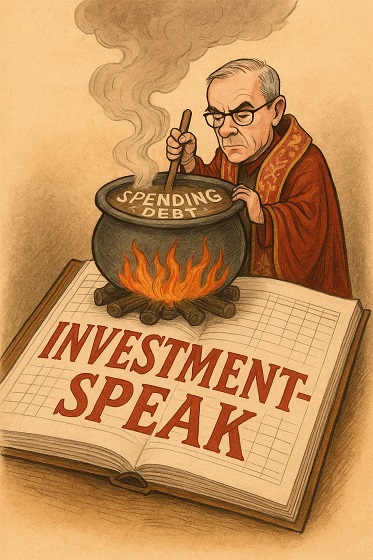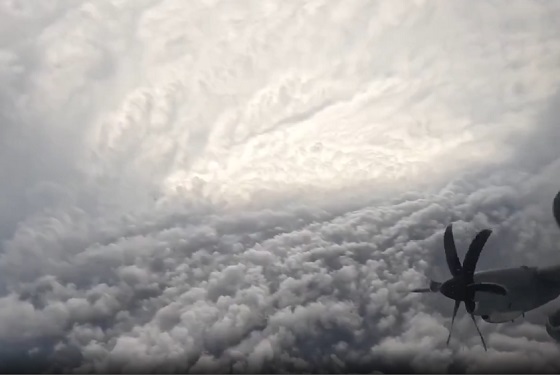National
Church fire on Canadian indigenous land on National Day for Truth and Reconciliation

From LifeSiteNews
RCMP said the September 30 fire at Alexander First Nation’s Roman Catholic church in Alberta was ‘suspicious,’ marking yet another potential attack on Catholics, particularly those of indigenous heritage.
In what seems to be yet another attack on Catholics, the Roman Catholic church on Alexander First Nation in Alberta was reduced to rubble in what police are calling a “suspicious” fire.
On September 30, the Royal Canadian Mounted Police (RCMP) got a call just after midnight that the local Catholic church of the Alexander First Nation was on fire. Soon after, fire crews from the Alexander First Nation, as well as neighboring communities, worked together to halt the blaze. Alexander First Nation is located in northern Alberta near the town of Morinville.
Despite an earnest effort by firefighters, the church was damaged beyond repair and is considered a total loss, police confirmed.
RCMP said in a press release that the “circumstances around this fire do appear suspicious,” and it is currently investigating the incident further.
“RCMP will be working to determine the cause of the fire,” said police.
In a Facebook post later in the day, the Alexander First Nation Fire Department Chief Wyatt Arcand said it was with great “sadness” that the First Nation’s church was lost.
“It is with great sadness that we confirm that our Nation’s church burned down last night,” wrote Arcand. “I would like to thank the Nation’s Fire Department staff, Public Works and Security and all those who assisted and continue to assist today in ensuring the fire is completely out.”
The Alexander First Nation church fire is the second church fire in less than a week. On September 28, an Anglican church in Loon Lake, Saskatchewan, was also reduced to a pile of ashes. The fires are just the two most recent in a string of church burnings and vandalism incidents which have plagued the country, particular indigenous Catholics.
Indeed, since the spring of 2021, some 112 churches, most of them Catholic, have been either burnt to the ground, vandalized or defiled across the country.
The church attacks started in earnest in 2021 when the mainstream media and federal government ran with the inflammatory and dubious claims that hundreds of children were buried and disregarded by Catholic priests and nuns who ran schools as part of the now-defunct residential schools system.
LifeSiteNews reported late last month that the Trudeau cabinet’s own data confirms there was a massive uptick in church attacks following the unproven claim that 215 “unmarked graves” were discovered at the Kamloops Residential School in British Columbia. With no bodies having been recovered, and the claims being made based off of soil disturbances found with ground-penetrating radar, Kamloops First Nation has since changed its claim of 215 graves to 200 “potential burials.”
While the attacks have rocked Catholics as a whole, they have had a particular impact on indigenous Catholics as many of the churches targeted have been located on First Nations.
Despite the devastating impact the dubious residential school claims have had on Catholics, including indigenous Catholics, a backbencher MP from the socialist New Democratic Party (NDP) Leah Gazan wants to criminalize through legislation those who deny the system was a “genocide.”
Anyone with information about the fire but wants to remain anonymous is asked to contact the local Crime Stoppers by phone at 1‐800‐222‐8477 (TIPS), or at www.tipsubmit.com. All others can contact the Morinville RCMP at 780-939-4520.
Bruce Dowbiggin
Get Ready: Your House May Not Be Yours Much Longer

As political scientist Philip Kaufman explains, “If you keep saying you are on stolen land, don’t be surprised when judges give it away to the natives you said you stole it from.”
“At Dodger Stadium on Monday night, singer JP Saxe re-wrote the lyrics of O Canada. The Toronto pop singer swapped the official “our home and native land” for “our home on native land.”
All things considered the land acknowledgement by Saxe (born Jonathan Percy Starker) is pretty tame stuff in today’s climate where some Canadians are suddenly learning they may not own their homes. But like Justin Trudeau washing “genocidal” Canadian laundry at the UN Saxe’s stunt at the Series is just another sign that Canada’s clever folk remain all-in on humiliating themselves in front of the world over reconciliation.
The latest acknowledgements go beyond an off-key pop singer toying with a song lyric. Just ask citizens of Richmond, B.C. which has sent a letter to residents warning that their property may not belong to them. This after a B.C. Supreme Court judge ruled the Vancouver Island First Nation have won back fishing rights and title for part of the land its ancestors used as a summer home in British Columbia’s Lower Mainland— despite opposition by two other Indigenous communities.
The gormless BC NDP government, which brought on the crisis by refusing to legally challenge native demands in the Blueberry River dispute, says it’s monitoring the Richmond file, admitting “owning private property with clear title is key to borrowing for a mortgage, economic certainty, and the real estate market.” But no promises, folks.
Naturally the locals are not amused. One Richmond property owner, who says he’s owned and paid taxes on his home since 1975, has been told by his lender they won’t be renewing his mortgage after First Nations land claim.

The Eby government settlement— called by Bruce Pardy “an existential threat to the future of his own province”— is part of a wave of claims both written and oral gaining momentum across the nation. As we wrote in August, “Among those properties in question is the Vancouver International Airport in Richmond, B.C.. How slick is that? A Carney government that ran on protecting Boomers’ primary residence cashboxes has now managed to put the entire notion of fee simple home ownership at risk.
As blogger Liam Harlow writes, “Indigenous people will now have an unprecedented, parallel title to private property in that area, a legal first of its kind in a court declaration. This title is declared a ‘prior and senior right to land,’ implying a stronger claim, with the court fundamentally asking “what remains of fee simple title after Aboriginal title is recognized in the same lands?”
It doesn’t stop there. Under UNDRIP (United Nations Declaration on the Rights of Indigenous Peoples) the UN will hold any properties acquired “in trust” for all “aboriginals” as they bicker among themselves for supremacy. Whether Canada’s natives will actually get the land, they will have served as a convenient vehicle for the progressive Left to expand its jurisdiction.
The glass half full on reconciliation holds that Canada’s politicians negotiate a fee with the new native owners to stay on these properties. (Good luck getting a mortgage with the Haida Gwai as co-owners on title.) The glass half empty is your equity goes bye-bye. The decision shocked many earnest Elbows Up types who had no idea their elected governments had fumbled the ball this way.

This is the culmination of decades of federal Liberal acquiescence on the Indigenous file, incompetence highlighted by Trudeau’s pandering visit to a graveyard that contained no alleged murdered babies. Or his refusal to re-open the main rail lines in 2020 when natives blocked the CP tracks.”
Citizens losing their homes in legal disputes should lead every newscast in the nation. Good luck sparking debate on these onrushing crises. As members of the B.C. legislature discovered when they were fired by their party for articulating a few inconvenient facts on reconciliation. The paid-off media, meanwhile, are too obsessed with Trudeau dating celebrity Katy Perry.
The reconciliation fatwa imposed by the Canadian Left powers the ludicrous ongoing spectacle over the Rez School graves. Based on verbal tradition alone, the prime minister of Canada staged pictures with teddy bears when there has never been a murder charge or a family searching for a dead child ever registered in Canada.
Multi-million dollar payouts by the Canadian government to investigate graves produced no evidence of any bodies— mostly because no effort was made. Evidence shows that children in Rez schools might have had a lower mortality rate from TB than those children in their residences. Or even in the general public.
Anyone challenging this reconciliation orthodoxy is fired from teaching positions, expelled from mainline political parties and banned from polite society. No one in Laurentian media seems willing to touch the hot skillet. No wonder polling in 2024 showed 60 percent of Canadians still believe the genocide claim.
Using this blank cheque indigenous radicals demanded land acknowledgements before meetings, political rallies and sports events. To which Woke Canada has caved. A bill in the BC legislature to ban acknowledgements “that deny the sovereignty of the Crown within British Columbia or that attribute collective guilt to individuals based on race, ancestry or the actions of Canadian historical figures” was quashed (88 of 93 MLAs voting no) The MLA behind the bill, Dallas Brodie, was instructed by a fellow PC MLA to get on the “right side of history.”
Meanwhile activists are in classrooms repeating the sanctity of land acknowledgements, ignoring that these lands had turned over many times in tribal warfare. To take just one example, the Comanche used the horse to go from a Canadian tribe to conquering multiple tribes and civilizations across the continent, stealing land and enslaving women and children. But new history mandates that it was their “ancestral” land. The pattern is repeated across North America.
Canadian liberals shrug at this as all just words and theatre. But as political scientist Philip Kaufman explains, “If you keep saying you are on stolen land, don’t be surprised when judges give it away to the natives you said you stole it from.” The BC NDP government’s guilt trip is now producing land claims across the country with warning home owners that, guess what, you may not own your home, either. Like this aboriginal challenge over lands in western Quebec.
There may be better ways to inspire radicalism among normally placid Canadians than kicking people out of homes they’ve bought, but for the moment we can’t think of any. And that’s nothing to sing about.
Bruce Dowbiggin @dowbboy is the editor of Not The Public Broadcaster A two-time winner of the Gemini Award as Canada’s top television sports broadcaster, his new book Deal With It: The Trades That Stunned The NHL And Changed hockey is now available on Amazon. Inexact Science: The Six Most Compelling Draft Years In NHL History, his previous book with his son Evan, was voted the seventh-best professional hockey book of all time by bookauthority.org . His 2004 book Money Players was voted sixth best on the same list, and is available via brucedowbigginbooks.ca.
Business
When Words Cook the Books: The Politics of ‘Investment-Speak’

The trick lies in the word “investment.” By separating “operational spending” from “capital investment,” Ottawa can now reclassify expenditures, moving them from one column to another without changing the underlying reality. A deficit remains a deficit.
Next week, Ottawa will table its first budget in nearly two years. The government has already told us what to expect. In October, the Department of Finance announced a new “Capital Budgeting Framework” that would allow Canada to “spend less so it can invest more.” The phrasing sounds prudent. It is not. It is a linguistic sleight of hand designed to obscure what the government is actually doing: spending more while pretending to exercise restraint.
The older meanings of the two words reveal the moral inversion. To spend, from the Latin dispendere, meant to weigh out and let go. It implied the careful release of what one possessed, whether money, time, or energy. In Old English and Middle English, to “spend” one’s life or strength was to pour it out, knowingly and finitely. There was gravity to the act; what was spent was gone. To invest, by contrast, came from the Latin investīre: to clothe or cover. Before it became a financial term, it referred to the ceremonial act of placing robes upon a monarch or knight, endowing them with office or honour. In its financial sense, to invest was to “clothe money” in a venture, expecting return. The first word carried finality; the second, expectancy. Spending ended a possession; investing disguised it in the promise of future gain.
From these roots, the moral difference is clear. Spending belongs to the household, measured, finite, and real. Investing belongs to the court, symbolic, ceremonial, and often self-flattering. When a government calls its spending “investment,” it does not change the transaction; it changes the costume.
The gradual adoption of this vocabulary by governments is an old habit dressed as innovation. For two decades, Ottawa has been learning to speak the language of investment as disguise. Budgets that once tabulated “program spending” now announce “investments in Canadians.” Under the Trudeau governments, tax credits and subsidies were cast as “investments in innovation.” The Canada Infrastructure Bank was sold as “leveraging private investment” rather than public debt. Even emergency COVID programs were justified as “investing in recovery.” The word became a universal solvent, dissolving distinctions between cost, borrowing, and speculation.
This year’s government has merely made the trend official. In October, the Department of Finance released Modernizing Canada’s Budgeting Approach, explaining that the new Capital Budgeting Framework would “distinguish day-to-day operational spending from capital investment.” The document asserts that this will “guide decisions and help prioritize. The trick lies in the word “investment.” By separating “operational spending” from “capital investment,” Ottawa can now reclassify expenditures, moving them from one column to another without changing the underlying reality. A deficit remains a deficit. Borrowed money is still borrowed. But call it investment, and suddenly it carries the glow of foresight and responsibility. The government plans to balance its operating budget while continuing to borrow for capital projects. The ledger will grow, but the language will comfort.
This is not merely bad accounting. It is a deliberate corruption of language in service of political evasion. And it reveals something deeper about how modern governments govern: not through honest argument but through the manipulation of words.
Ottawa has been perfecting this costume for two decades. Budgets that once listed “program spending” now announce “investments in Canadians.” Tax credits became “investments in innovation.” The Canada Infrastructure Bank was sold as “leveraging private investment,” not public debt. COVID emergency programs were justified as “investing in recovery.” The word became a universal solvent, dissolving the distinction between cost, borrowing, and speculation.
This year’s framework makes the habit official. The October document from Finance Canada promises that the new approach will “guide decisions and help prioritize investments that generate long-term benefits for Canadians, such as major projects, housing, clean energy, and infrastructure.” The tone is managerial and assured. The assumption goes unexamined: that one can divide the public purse into virtuous investment and wasteful spending, and that the government possesses the wisdom to know the difference.
Haultain Research is a reader-supported publication.
To receive new posts and support our work, consider becoming a donor or a paid subscriber.
The Prime Minister echoed the line in his own announcement: “Budget 2025 will set out our plan to spend less so we can invest more in Canada’s long-term growth.” Read carefully, the statement reveals its own dishonesty. To “spend less” no longer means reducing outlays. It means shifting expenditures into a different category where they escape the stigma of cost. The government intends to continue borrowing, but it will refer to that borrowing by a supposedly more respectable name.
The definition of capital investment is conveniently broad. It includes tax credits, corporate subsidies, and nearly any policy “that contributes to capital formation.” The Fraser Institute and others have warned that this expansiveness allows Ottawa to reclassify politically favored programs as investment, inflating the appearance of fiscal discipline while reducing transparency. A deficit becomes a “generational investment.” A subsidy becomes a “partnership.” Waste is rebranded as “capacity-building.” The language does the work that policy cannot.
Recent history exposes the fraud. Consider the electric vehicle battery subsidies, heralded as “historic investments” in the green economy. Tens of billions were promised. Projects have stalled, been postponed, or quietly abandoned. The so-called green slush fund, officially presented as an investment vehicle for sustainable innovation, turned out to be a network of cronyism and waste. These, too, were dressed as investments. When their failures emerged, the language remained untouched, as though incompetence and corruption could not breach the sanctity of the term.
The alchemy works because language shapes perception faster than arithmetic. “Investment” suggests prudence and reward. “Spending” suggests indulgence and loss. Citizens hear that the government is “investing in Canadians” and imagine return, not depletion. The moral weight of the word does the political work. Accountability fades behind aspiration.
There is a deeper danger here. Words like spend and cost belong to the vocabulary of limits. They remind us that government operates with other people’s money. Invest, as politicians now use it, belongs to the vocabulary of boundless promise. It implies benevolence without constraint, as though the state were a benefactor rather than a borrower. When the government claims to “invest in Canadians,” it implies ownership of the very people whose money it spends. The inversion of subject and object is telling. It reveals the paternalism at the heart of modern technocracy.
George Orwell wrote that political language “is designed to make lies sound truthful and murder respectable.” He understood that the corruption of speech precedes the corruption of thought. When a government renames its spending as investment, it is not simply misdescribing an accounting category. It is reshaping the citizen’s perception of what government may do. If all spending is investment, then any limit on it seems stingy, even immoral. The citizen becomes debtor to a future defined by the state.
The deceit is subtle. No one disputes that bridges or power grids can be sound investments. The deceit lies in the implication that all government activity now yields return, that every expense is productive, every grant visionary. By this logic, no spending is considered waste and no deficit is deemed reckless, as long as it is labelled as an investment. The language abolishes the distinction between consumption and creation, between present sacrifice and future gain. In doing so, it abolishes prudence itself.
Prudence, in the older sense, is not caution for its own sake. It is moral realism: the recognition that resources are finite and choices have costs. The new investment rhetoric invites the opposite illusion. Money, once moralized as investment, appears to carry no weight of trade-off. Ottawa can clothe profligacy in the robes of responsibility. The government that promises to “spend less and invest more” is like a man claiming to drink less whiskey by pouring it into crystal.
The cost of this linguistic vanity is not only fiscal. It corrodes public trust. Citizens sense the dissonance. Deficits widen, taxes climb, promises multiply. When language becomes a substitute for honesty, cynicism follows. A people that cannot trust its government’s words cannot trust its numbers.
The remedy is simple, though seldom easy: call things by their names. Spending is spending, whether on roads, welfare, or research. Some are wise, some are foolish. But none becomes virtuous by relabeling. The duty of government is not to invent euphemisms but to justify expenditures plainly and bear the consequences. That is what accountability means.
Roger Scruton observed that conservatism, properly understood, is “the politics of the tried and tested against the politics of experiment.” In fiscal speech, that means preferring accuracy to allure. A government confident in its stewardship would not fear plain-spoken spending. Only one uneasy with its own excess needs the comfort of investment.
Ottawa’s linguistic reform is therefore not a matter of diction. It is an attempt to alter reality through language, to convert liability into virtue by decree. The danger is that citizens, lulled by investment-speak, will cease to notice the arithmetic beneath. The numbers will grow; the language will glow. By the time the robe is lifted, the treasury will be bare.
That is not a forecast. It is a warning. When governments clothe waste in the garments of investment, they are not modernizing accounting. They are modernizing deceit.
We are grateful that you’re reading an article from Haultain Research.
For the full experience, and to help us bring you more quality research and commentary,
-

 Business2 days ago
Business2 days agoTrans Mountain executive says it’s time to fix the system, expand access, and think like a nation builder
-

 Business2 days ago
Business2 days agoFlying saucers, crystal paperweights and branded apples: inside the feds’ promotional merch splurge
-

 International1 day ago
International1 day agoStrongest hurricane in 174 years makes landfall in Jamaica
-

 Internet1 day ago
Internet1 day agoMusk launches Grokipedia to break Wikipedia’s information monopoly
-

 Business2 days ago
Business2 days agoCanada’s combative trade tactics are backfiring
-

 MAiD1 day ago
MAiD1 day agoStudy promotes liver transplants from Canadian euthanasia victims
-

 Business1 day ago
Business1 day agoCanada has given $109 million to Communist China for ‘sustainable development’ since 2015
-

 Business23 hours ago
Business23 hours agoBill Gates walks away from the climate cult











